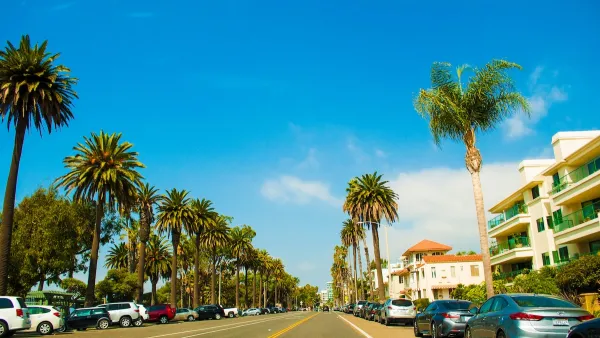Ruben Anderson suggests that if automobile parking could be kept to properties, that could free up the former on-street parking to become Garden Streets, so that cities could grow much more of their own produce.
"Cleveland, Ohio is a hub of Asphalt Gardening, where planter boxes are put right on top of parking lots, separated from the polluted soil and oily road by a layer of wood chips. This would be a great way to try Garden Streets -- do a block or two, then a couple of years later rip up the asphalt and put roots down.
I happen to live in Vancouver, where the city council passed a motion to have 2010 new garden plots by 2010. A handy graph on the linked page shows there is not even a dream of actually achieving it, even though it is a pittance by some standards. (The city-state of Singapore, for example, produces 25 per cent of its own vegetables.)
So call me the answer to Vancouver City Hall's prayers because 2010 new garden plots is only 14 blocks of Garden Streets.
Could we start street gardening without a controversial bylaw to eliminate street parking? Sure. The city could run a newspaper ad explaining the idea and asking blocks to volunteer. Let the citizens do all the legwork of convincing their neighbors. Using bio-intensive gardening methods, my block could provide all the vegetables needed for 22 people, plus all the plant material needed to keep the soil productive -- no need for chemical fertilizers here.
'Arable Acres' found that Vancouver could grow all its own produce by farming the existing front and back yards. Times have changed since the study was done in 1980 -- there are more people living in the city, and development has eaten up space. But other things have changed too. That study suggested those gardens could produce $100 million worth of produce. That is $265,000,000 in today's dollars.
The possibilities make your head spin -- 70 hectares of farm in Burnaby produce 10 per cent of the vegetables grown in the Fraser Valley. Arable Acres estimates Vancouver has about 3,000 hectares in streets and another 3,000 hectares in yards. Putting this into practice, the Edible Estates project is farming front yards in six cities across the United States, from Lakewood, California to Maplewood, New Jersey.
All of these delicious statistics beg the question whether the current trend in zoning experiments -- reduced on-site parking so drivers have to fight for spots on the street -- is entirely a good idea."
FULL STORY: Your Asphalt Parking Spot Can Become a Blooming Garden Plot

Planetizen Federal Action Tracker
A weekly monitor of how Trump’s orders and actions are impacting planners and planning in America.

Map: Where Senate Republicans Want to Sell Your Public Lands
For public land advocates, the Senate Republicans’ proposal to sell millions of acres of public land in the West is “the biggest fight of their careers.”

Restaurant Patios Were a Pandemic Win — Why Were They so Hard to Keep?
Social distancing requirements and changes in travel patterns prompted cities to pilot new uses for street and sidewalk space. Then it got complicated.

Platform Pilsner: Vancouver Transit Agency Releases... a Beer?
TransLink will receive a portion of every sale of the four-pack.

Toronto Weighs Cheaper Transit, Parking Hikes for Major Events
Special event rates would take effect during large festivals, sports games and concerts to ‘discourage driving, manage congestion and free up space for transit.”

Berlin to Consider Car-Free Zone Larger Than Manhattan
The area bound by the 22-mile Ringbahn would still allow 12 uses of a private automobile per year per person, and several other exemptions.
Urban Design for Planners 1: Software Tools
This six-course series explores essential urban design concepts using open source software and equips planners with the tools they need to participate fully in the urban design process.
Planning for Universal Design
Learn the tools for implementing Universal Design in planning regulations.
Heyer Gruel & Associates PA
JM Goldson LLC
Custer County Colorado
City of Camden Redevelopment Agency
City of Astoria
Transportation Research & Education Center (TREC) at Portland State University
Camden Redevelopment Agency
City of Claremont
Municipality of Princeton (NJ)




























